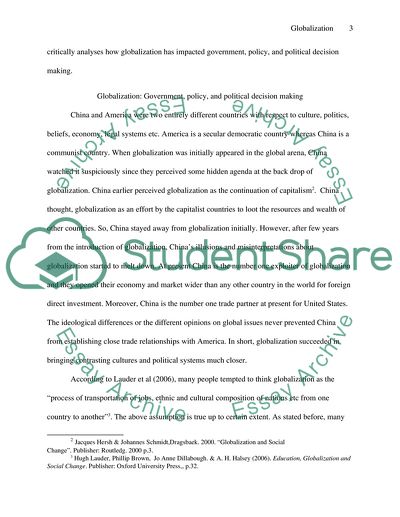Cite this document
(How Globalization Has Impacted Government, and Decision Making Dissertation, n.d.)
How Globalization Has Impacted Government, and Decision Making Dissertation. Retrieved from https://studentshare.org/law/1750248-globalization-the-increasing-economic-and-cultural-interconnectedness-between-countries-is-a-complex-and-controversial-phenomenon-critically-assess-how-globalization-has-impacted-government-policy-and-political-decision-making
How Globalization Has Impacted Government, and Decision Making Dissertation. Retrieved from https://studentshare.org/law/1750248-globalization-the-increasing-economic-and-cultural-interconnectedness-between-countries-is-a-complex-and-controversial-phenomenon-critically-assess-how-globalization-has-impacted-government-policy-and-political-decision-making
(How Globalization Has Impacted Government, and Decision Making Dissertation)
How Globalization Has Impacted Government, and Decision Making Dissertation. https://studentshare.org/law/1750248-globalization-the-increasing-economic-and-cultural-interconnectedness-between-countries-is-a-complex-and-controversial-phenomenon-critically-assess-how-globalization-has-impacted-government-policy-and-political-decision-making.
How Globalization Has Impacted Government, and Decision Making Dissertation. https://studentshare.org/law/1750248-globalization-the-increasing-economic-and-cultural-interconnectedness-between-countries-is-a-complex-and-controversial-phenomenon-critically-assess-how-globalization-has-impacted-government-policy-and-political-decision-making.
“How Globalization Has Impacted Government, and Decision Making Dissertation”, n.d. https://studentshare.org/law/1750248-globalization-the-increasing-economic-and-cultural-interconnectedness-between-countries-is-a-complex-and-controversial-phenomenon-critically-assess-how-globalization-has-impacted-government-policy-and-political-decision-making.


